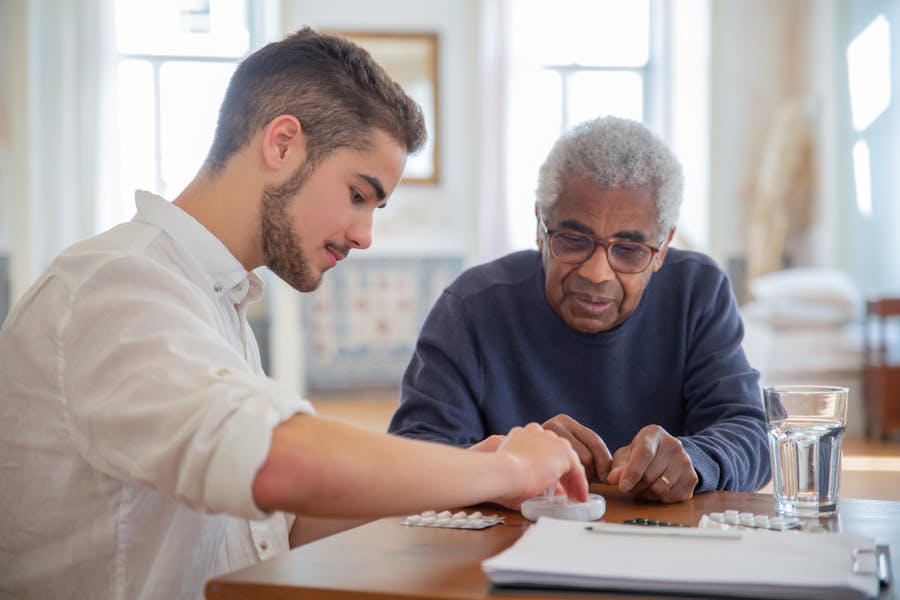When you entrust your loved one to a nursing home, you expect a high standard of care. You want them to be taken care of and protected from harm. However, despite your best efforts, accidental falls can still happen.
Falls in the elderly can be deadly if not addressed promptly. Below, we’ll discuss all you need to know about falling in a nursing home, including immediate steps you should take and how to take legal action to prevent it from happening again.
What to Do After Falling in a Nursing Home
Unfortunately, nursing home falls are a common occurrence. The United States Agency for Healthcare Research and Quality estimates that about half of nursing home residents will fall annually, and about 1 in 3 will fall multiple times yearly. That’s a staggering number, so it’s important to understand what to do in case of a nursing home fall.
1. Report the Fall and Seek Medical Care
If you can reach your call button, call for assistance. If you cannot, yell until someone can reach you. Note how long it takes for someone to assist you. They can help assess whether you have any injuries.
Elderly patients are at a high risk of breaking their hip, so you may be taken for an x-ray to be careful. Ask to be checked out by the on-call nurse or doctor. If you feel your injuries are not being taken seriously, request to be taken to the hospital or call 911. You have the right to seek appropriate medical care.
Report the fall directly with the nursing home and ask for a copy of the report, including any assessments following your fall.
2. Gather Evidence of the Fall
Take note of any cuts, bruises, broken bones, and other injuries you sustained over your body. If possible, take a picture of your injuries, the hazard that caused your fall, the names of the nurses and doctors who saw you, and anything else that could be helpful.
This evidence can help prove that the nursing home’s negligence caused your fall. The more information you have, the better. Your attorney can decide what they can and cannot use.
3. Contact an Attorney
Contact a nursing home falls and fractures lawyer. They can help sift through your evidence and help you understand what your legal options are. If you are having insurance issues, your nursing home attorney can negotiate with them on your behalf. When you seek legal action against the nursing home, they will negotiate a settlement and represent you in court if one cannot be met.
In order to hold nursing homes accountable, you will need to prove that negligence occurred, and you can do so by establishing four premises.
- Duty of Care: The nursing home had a duty of care to keep your loved one safe. That can be assumed if they were a nursing home resident.
- Breach of Care: The nursing home breached that care by allowing the resident to fall directly or indirectly.
- Causation: The nursing home’s breach of care directly caused harm to the individual, including physical injuries, emotional distress, and more.
- Damages: As a result, you suffered damages, including medical bills, damage to personal property, pain and suffering, and more.
Your attorney will be your voice throughout the legal process, holding the nursing home accountable for its actions. While it can be intimidating, suing the nursing home can help them make changes and ensure this does not happen to another patient.
Fall Prevention in Nursing Homes
During routine inspections, nursing homes are evaluated on their environmental conditions and what policies and procedures they have in place to prevent accident falls in nursing homes.
Rooms, common areas, and walkways should be free from tripping hazards, including water spills, lifted carpet, debris, etc. Additionally, they should be well-lit so individuals can see where they are walking. They may even want to install railings and handles to give patients something to hold onto as they walk.
Patients known to be at risk of falling should have that indicated on their medical charts and be given extra attention to prevent them from falling, especially if certain medications make them dizzy. Nursing homes should also have fall prevention plans to help maintain safe living conditions.
Nursing homes are responsible for taking adequate steps to prevent falls from occurring.
Conclusion
While falling at a nursing home is common, you don’t have to accept it as an eventuality. Instead, if your loved one falls, you can help them get justice and hold the nursing home accountable for their negligence.
They are responsible for caring for their residents and providing a safe space for them to live. That’s the reason many individuals are placed in their care, so don’t be afraid to take legal action if your loved one falls in a nursing home.


